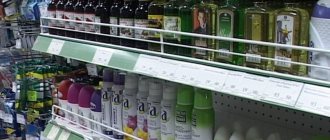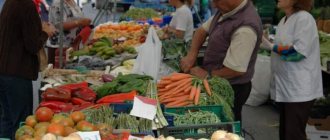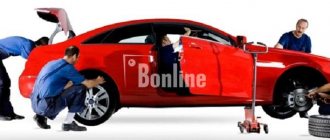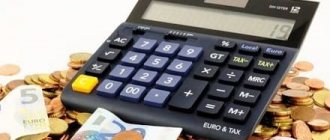⭐ ⭐ ⭐ ⭐ ⭐ Legal topics are very complex, but in this article we will try to answer the question “Commission Trading OKVED 2021”. Of course, if you still have questions, you can consult with lawyers online for free directly on the website.
- in special stores created for the sale of one or another type of used goods (thrift stores, antique stores, clothing stores, shoe stores, etc.);
- in stores intended for the sale of second-hand goods without identification of the assortment;
- in department store departments where food, beverages and tobacco products are not predominant;
- in markets, general and specialized (the so-called “flea” market);
- from non-stationary retail outlets (automatic shops, trays, tables, layouts, etc.);
- through auction houses;
- commission agents outside stores;
- on the Internet.
What is an unnecessary thing for one person, may turn out to be a much-needed acquisition for another. Good things must fully exhaust their resources. And things that have a certain history must also find their owner. This is why retail trade in used items is so popular.
Selection of codes
- printed publications having antiquarian or second-hand book value;
- audio and video recordings;
- antiques;
- any clothes and shoes;
- hosiery;
- hats;
- home textiles;
- household items, including appliances;
- carpets;
- toys;
- accessories and decorative items;
- furniture.
- trade in specialized stores presenting a certain range of goods not presented in other sections of the classification, such as clothing, footwear, leather goods, pharmaceuticals and products used for medical purposes, watches, souvenirs, cleaning products, weapons, flowers, pets and other
— retail trade, by ordering goods by mail or via the Internet information and communication network, i.e. such trading activity when the buyer makes a choice of goods based on advertisements, catalogues, information on Internet pages, samples or any other types of advertising and places his order by mail, telephone or via the Internet information and communication network (usually using special means, provided on the website)
Commission trade in clothing
Trade in used clothing is in very high demand among the population. An item that is unnecessary for one person may be a necessary acquisition for another. Sometimes in such stores you can buy high-quality and rare (unique) things.
In 2021, companies use the new OKVED-2 classifier to select the type of activity. Download OKVED 2021 codes with a breakdown by type of activity. This is the official table. With the help of this directory, organizations and individual entrepreneurs can quickly select their type of activity.
Commission trading concept
Commission trading means trading activities in which the relations of the parties are regulated by a commission agreement. At the same time, the seller sells goods transferred to him for sale by other persons. The participants in such relations are:
- principal (gives instructions to conclude purchase and sale transactions for a fee);
- commission agent (seller who carries out accepted orders for a certain percentage - commission).
New and used (used) non-food products, antiques, and art objects are accepted for commission. In addition, the commission can accept confiscated and ownerless property, as well as that which, by a court decision, became the property of the state.
New OKVED codes in 2021 with breakdown by type of activity
— conducting expertise in the field of information technology: development, changes, testing and support of software, planning and design of computer systems that combine computer equipment, software and communication technologies;
What OKVED codes are in effect in 2021?
Tax officials are getting rid of companies with false information in the state register. Any organization can come under suspicion. Editorial office of the newspaper “Accounting. Taxes. Pravo" learned that the tax authorities will check first of all.
Activities for the production of soy products: soy milk drinks and yogurt, soy soft cheeses, soy curd should be identified with code 15.89.1. “Production of ready-to-eat food products and preparations for their preparation, not included in other groups.”
Wardrobe services are classified in group 93.05 “Provision of other personal services” if the organization carries out this type of activity for a fee. Otherwise, its activities are auxiliary.
What will be the OKVED encoding “Commission trade” in 2019
The OKVED code “Commission trade” in 2021 must be taken from the current edition of the OKVED2 directory (approved by Rosstandart, order No. 14-st dated January 31, 2014, as amended on July 10, 2018). The official name of this classifier is “OK 029-2014 (NACE Rev. 2)”. The OKVED2 directory is very convenient to use, since similar types of activities are grouped in it into separate sections.
The OKVED code “Commission trade in non-food products” is selected as follows:
- We are looking for section “G” (wholesale and retail trade).
- We move to class “47” (wholesale trade, except motor vehicles).
- Next, we move to subclass “47.7” (trade in specialized stores of other goods).
To trade used goods, select the required code in the “47.79” group. This group includes activities related to retail trade:
- antiques (47.79.1);
- second-hand books (47.79.2);
- other used goods (47.79.3);
- activities of auction houses (47.79.4).
Group 47.79 does not include some types of commission trading. These are the following types of activities:
- sale of used cars (code 45.11);
- thrift store services (code 64.92);
- services of online auctions and other auctions (code 47.91, 47.99).
You can select several OKVED codes. But only one of them will be primary, and all other encodings will be additional. When registering with the Federal Tax Service, in a special application you must indicate the type of activity code, which will consist of at least 4 digital characters.
OKVED codes 2021 with decoding and easy search
- 43.31 “Production of plastering works”
- 43.32 “Carpentry and carpentry work”
- 43.32.1 “Installation of doors (except automatic and revolving), windows, door and window frames made of wood or other materials”
- 43.32.2 “Installation of internal stairs, built-in wardrobes, built-in kitchen equipment
- 43.32.3 “Performance of work on the interior decoration of buildings (including ceilings, sliding and removable partitions, etc.)”
OKVED codes with decoding for 2021 with decoding
For state registration you must use at least three digital characters. That is, you cannot select the OKVED 43 class, you need to select a subclass. If you carry out several types of activities, you are allowed to indicate the required quantity during registration; there are no restrictions. By the way, immediately after registration it is not necessary to carry out all types of activities - the law does not require this. If suddenly, in the process of doing business, you want to start carrying out other types of activities, you can make changes to the state register and add new codes (or remove unnecessary ones).
We recommend reading: Differences from the Contract Manager Functions and Powers of the Authorized Body Under 44-FZ
- retail sale of information and communications technology and equipment, such as computers, peripheral equipment, telecommunications equipment and consumer electronics, in specialized stores
Commission trade in clothing
Trade in used clothing is in very high demand among the population. An item that is unnecessary for one person may be a necessary acquisition for another. Sometimes in such stores you can buy high-quality and rare (unique) things.
If you decide to open your own store for such trade, the following OKVED codes “Commission trade in clothing” will suit you:
- “47.79.3” – trade in other used goods;
- “47.71” – sale of clothing in specialized stores;
- "47.72" - sale of shoes.
Explanations and clarifications
What is an unnecessary thing for one person, may turn out to be a much-needed acquisition for another. Good things must fully exhaust their resources. And things that have a certain history must also find their owner. This is why retail trade in used items is so popular.
You can organize such a business on a variety of bases: it all depends on the form in which you are going to trade items, clothing and other goods. Most often they are implemented:
- in special stores created for the sale of one or another type of used goods (thrift stores, antique stores, clothing stores, shoe stores, etc.);
- in stores intended for the sale of second-hand goods without identification of the assortment;
- in department store departments where food, beverages and tobacco products are not predominant;
- in markets, general and specialized (the so-called “flea” market);
- from non-stationary retail outlets (automatic shops, trays, tables, layouts, etc.);
- through auction houses;
- commission agents outside stores;
- on the Internet.
IMPORTANT! The services of online auctions and consignment stores constitute a separate group of OKVED; an entrepreneur must be careful when choosing an activity code.
Products that can be included in this group come in a wide range:
- printed publications having antiquarian or second-hand book value;
- audio and video recordings;
- antiques;
- any clothes and shoes;
- hosiery;
- hats;
- home textiles;
- household items, including appliances;
- carpets;
- toys;
- accessories and decorative items;
- furniture.
FOR YOUR INFORMATION! Cars that change their owner do not belong to this group of goods; their sale refers to another type of activity according to OKVED.
Commission trade in jewelry
Commission sale of jewelry is an alternative to pawnshop activity. Legal entities and individuals can engage in this type of activity.
The OKVED code “Commission trade in jewelry” can be selected from the following codes:
- “47.79.1” – trade in antiques;
- “47.79.3” – sale of other used goods;
- “47.99” – other trade outside shops and markets;
- “47.77” – sale of watches and jewelry (in specialized stores).
OKVED for 2021 with decoding official website
Secondly , to submit reports. Many reporting forms provide for the indication of OKVED, usually on the title pages. The regulations on the procedure for filling out calculations and declarations directly provide for this detail.
What is OKVED and why is it needed in 2021
Thirdly , the tariff for contributions for injuries depends on the type of activity. It is set individually for each policyholder: organization or individual entrepreneur. Every year, policyholders send documents to social insurance to confirm the main OKVED. If this is not done, FSS specialists will set a maximum tariff for the company. They will again focus on OKVEDs, which the company entered into the Unified State Register of Legal Entities.
This class includes: - retail sale in specialized stores of goods for cultural and entertainment purposes, such as books, newspapers, audio and video recordings, sports equipment, games and toys
Commission trade in cars
Many citizens of the Russian Federation refuse to buy used cars from private individuals in favor of proven and reliable organizations. The demand in this area is quite high, so the business of selling used cars can be very profitable. Before accepting a car for consignment trade, you should have it diagnosed at a service center.
The OKVED code “Commission trade in cars” is not included in the group “47.79”; it refers to a different type of activity. The code is selected as follows:
- In section “G” of the classifier we move to class “45”, then to subclass “45.1” “Trade in motor vehicles”.
- We are looking for the grouping “45.11”, this will be the required code for commission trade in motor vehicles.
The coding “45.11” is suitable for trading in both new and used cars and light-duty trucks. The sale of SUVs weighing no more than 3.5 tons also applies here.
As an additional code to OKVED “Commission trade in motor vehicles”, you can specify the code “47.99”.
Possible codes for commission trading are presented in our table.
Read also: Changing OKVED codes: step-by-step instructions
OKVED code 47 - Retail trade, except for trade in motor vehicles and motorcycles
This group includes: - retail trade of home furniture; — retail trade in lighting fixtures; - retail trade in household utensils and cutlery, glassware, pottery, porcelain and earthenware; — retail trade in wood products, cork and wickerwork; — retail trade of non-electric household appliances; — retail trade in musical instruments and sheet music; - retail trade in electrical security alarm systems, such as locking devices, safes and vaults, excluding installation and maintenance services; - retail trade in household goods and appliances not included in other groups. This group does not include: - retail trade in antiques, see 47.79
This OKVED code includes:
- - resale (sale without conversion) of new and used goods for personal or household use, or use by shops, department stores, tents, postal trade enterprises, persons delivering goods on a door-to-door basis, traders, consumer cooperatives, etc. d. Retail trade is classified primarily by type of trading enterprise (retail trade in general assortment stores - groupings from 47.1 to 47.7, retail trade outside stores - groupings from 47.8 to 47.9). Retail trade in general merchandise stores includes: retail sales of used goods (group 47.9). For retail sales in department stores, a further distinction is made between retail sales in specialized stores (groups 47.2 to 47.7) and retail sales in non-specialized stores (group 47.1). The above-mentioned groups are further subdivided according to the range of products sold. Sales of goods not through general stores are divided according to forms of trade, such as retail sales in stalls and markets (group 47.8) and other retail sales not through department stores, such as mail order, door-to-door, vending machines, etc. d. (grouping 47.9). The range of goods in this group is limited to goods usually referred to as consumer goods or retail goods. Therefore, goods that are not usually sold in retail trade, such as cereal grains, ores, industrial equipment, etc. are not included in this group
- - retail sale of goods such as personal computers, stationery, paints or wood, although these products may not be suitable for personal or household purposes. Processing of goods traditionally used in trade does not affect the basic characteristics of goods and may include, for example, only their sorting, separating, mixing and packaging
- - retail trade through commission sales agents and the activities of retail auction houses
We recommend reading: Will there be a Migration Amnesty for Citizens of Uzbekistan in 2021?
Due to the fact that the Agent or Commission Agent’s income from intermediary activities is agency or commission fees that they receive from the Principal or Principal, in our opinion, should fall under UTII, although some consultants argue that agency and commission services are a separate type activities that are not listed in clause 2 of Art. 346.26 of the Tax Code, which means income in the form of agency or commission fees must be taxed according to the general or simplified system.
A letter with a password has been sent to your email. If you have not received it within 3 minutes, please double-check the correctness of the entered E-mail, make sure that the letter did not end up in the SPAM folder, or contact us by phone (the call is free).
OKVED: vending machines, payment terminals
- Sets of codes labeled “OK” No. 029-2021 , also known as NACE revision 1.1, came into effect on January 1, 2021, until the beginning of January 2021 it was not revised. Today, this Classifier is used synchronously with the provisions of the All-Russian Classifier of Goods, Services and Industrial Products in accordance with the types of financial activities. This followed large-scale all-Russian economic surveys of economic entities, and served as the basis for the development of a tabular input-output database.
- The accuracy of entering these codes for the names of types of activities is necessary to ensure that the registration of legal entities and entrepreneurs is carried out without nuances and complications.
- The OKVED computer system consists of a description of groups, functions for creating a collection of codes, and the ability to export a set of codes to different programs for filling out registration forms.
Without an OKVED code, you cannot register a company or entrepreneur. In registration forms, separate sections are allocated for indicating OKVED. If the application does not indicate any type of activity, registration will be denied.
okved_komissionnaya_torgovlya.jpg
Related publications
Commission trading benefits both buyers and sellers. You can organize such a business in specialized stores or other retail outlets; there are no restrictions on this matter. In order for the activity to be carried out legally, the entrepreneur must declare the correct OKVED code “Commission trade” during state registration with the tax service.
Who can act as a commission agent? Where can you find such companies?
Commission agents, in the official understanding, can be any legal entity that has the right to carry out commission activities.
Not officially, any individual who helps sell or buy a car, agent, intermediary, is a commission agent. But such persons are not obliged to answer by law in the event of an unforeseen/disputed situation.
Thus, a legally legitimate commission agent can be a car dealership or a car sales platform whose list of activities includes commission trading.
Transferring money and paying commission
Depending on the agreed conditions, funds can be transferred within the time specified in the agreement or within the same hour at the moment of signing the agreement.
The transfer of funds is additionally confirmed by a receipt from the seller and/or an invoice certificate issued by the car dealership.
You will have to pay the commission under the terms of the relevant section of the contract. The amount to be paid can be fixed (50 rubles), depend on the days of downtime (every day 400 rubles) or calculated as a percentage of the sales price.
Also, the agreement between the commission agent and the principal specifies the process for paying commissions; this can be a deduction from the sale amount or payment by the principal himself.
Conditions for the purchase and sale of a car under a commission agreement
Summary:
Since the seller of the car is a car dealership, it will be indicated in the sales contract as the seller.
A consignment car shop or commission agent must, at the request of the buyer, present permitting documents for the right to conduct commission trade.
For this procedure, the commission agent must have the rights granted to him by the owner of the vehicle upon transfer to the commission. There is already a commission agreement between the car dealership and the consignor, which is drawn up in three copies, one of which is given to the buyer as an annex to the purchase and sale agreement.
The terms of purchase and sale are fixed in the text of the contract. The title of the contract indicates that the purchase and sale of a commission vehicle is being carried out. The details of the place and time of conclusion of the contract, as well as the details and names (full names) of the parties are entered. The vehicle details must be entered, including registration, indicating the series and document numbers.
The contract provides for the responsibility of the parties. On the part of the seller, for delay in handing over the car or its poor condition, a fine is imposed, which is regulated by the legislation of the Russian Federation. As well as violation of payment terms on the part of the buyer. The amount of fines is established in advance, when drawing up the contract. The signatures of the parties confirm their agreement with the terms specified in the agreement.
If someone violates the terms of the contract, then the other party has the right to refuse the transaction.
Violation of the terms due to force majeure is considered force majeure and is regulated through negotiations or litigation initiated by the disagreeing party.
In the case of the principal, if a controversial situation arises between the seller and the buyer, then the principal, upon the date specified in the commission agreement, has the right to contact the car dealership with a demand to return the vehicle or payment.
This situation is resolved through negotiations between the car dealership and the owner. If a mutual solution is not found during the negotiations, the principal has the right to go to court.
Pros and cons of such a deal
As with any transaction with intermediary, selling a car through a car dealership is, on the one hand, profitable, but on the other hand, the transaction has certain risks.
Selling a car takes a lot of time, both in pre-sale preparation and in communicating with potential clients. A car dealership can take on these chores, relieving the owner of worries and at the same time making money on the transaction.
· pre-sale preparation is carried out by specialists at the car dealership;
· coming to the salon, clients see the product “live”;
· the entire re-registration process is accompanied by the legal side of the car dealership;
· at a car dealership, sellers receive a percentage of transactions and are interested in the speedy sale of any vehicle, moreover, these are professional sellers who have significant sales experience and know the client’s psychology, which means the chances of selling faster increase;
· the car owner does not need to worry about personal safety; in the case of selling an expensive car, car dealerships with a good reputation are reliable partners.
· often in car dealerships the role of sellers is played by “outbids” from the car market, who not only sell well, but also know how to reduce the price very well and thus you can lose part of the amount at the time of evaluation;
· commission agents go to various lengths to make money on their services, and when seeking advice from such a store, the owner is informed that they were interested in such a car, then an agreement is drawn up, pre-sale (not cheap) preparation, but there is no buyer;
· there is no way to move around by car; after it is handed over for commission, it is in the salon;
· if the car is not new, then after a preliminary inspection, they can return it to the owner, informing them that the deal is not profitable for them, and they will have to pay for the inspection;
· advertising free training and other privileges for selling a car, as a result, if you want to pick it up, the owner may be shocked by the huge amount for idle time in a parking space at a car dealership.
All the pitfalls can be identified if you carefully study the contract, as well as reviews about the specific commission agent.
· a car with a guarantee of legal purity;
· before sale, the car is diagnosed and has an official conclusion about the vehicle;
· the salon will not force you to purchase and will honestly tell you about any defects;
· the warranty is not a fiction; if a defect is discovered after purchase that was not taken into account, the car dealership carries out repairs at its own expense.
· a car from a car dealership will most likely cost more than on the auto market or from the owner according to an advertisement (but not an axiom);
· some dealerships may include additional costs in the car purchase agreement, which the buyer is required to cover;
· It is not always possible to travel outside the parking space and drive a used car in car dealerships, as well as to carry out independent diagnostics by checking compression, spark plugs and other elements.







